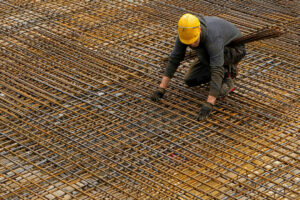By Beatriz Marie D. Cruz, Reporter
THE GOVERNMENT must reduce red tape and focus on projects in the countryside to ensure that infrastructure spending reaches the target level of 6% of gross domestic product (GDP) this year, analysts said.
“(The) government should build on this infrastructure spending momentum and target higher spending towards 6% of GDP for this year,” Terry L. Ridon, a public investment analyst and convenor of think tank InfraWatch PH, said in a Viber message.
Overall infrastructure disbursements last year were equivalent to 5.8% of GDP, the Department of Budget and Management (DBM) said on Monday. This surpassed the 5.3% target for 2023 and matched the 5.8% performance in 2022.
Leonardo A. Lanzona, who teaches economics at the Ateneo de Manila, said the government should ramp up infrastructure outside the capital region to ensure growth.
“The agricultural sector will not be modernized into an advanced level if infrastructure is only located in urbanized industrial regions,” Mr. Lanzona said via Messenger chat.
The government must also alleviate corruption and redundancies in infrastructure projects, which may bring in “negligible returns in the long run.”
Infrastructure and other capital outlays in 2023 grew 18.7% to P1.2 trillion last year, the DBM said.
“The solid infrastructure spending performance largely resulted from the accelerated implementation of construction activities and payments for completed infrastructure projects of the DPWH, such as civil works, supplies, and equipment, as well as right-of-way claims,” the DBM said.
Direct payments made by development partners for foreign-assisted rail and subway projects, like the South Commuter Railway Project, Malolos-Clark Railway Project, North-South Commuter Railway Project, and Metro Manila Subway Project contributed to high infrastructure spending, the DBM said.
Rene S. Santiago, former president of the Transportation Science Society of the Philippines, said the government must ensure fiscal consolidation to ensure funds in infrastructure projects are well spent.
“Priorities in transport should be RO-RO (roll-on/roll-off) cargo ships, not railway,” Mr. Santiago said via Viber, citing the high foreign content of rail projects, reducing their overall economic impact on the Philippines.
